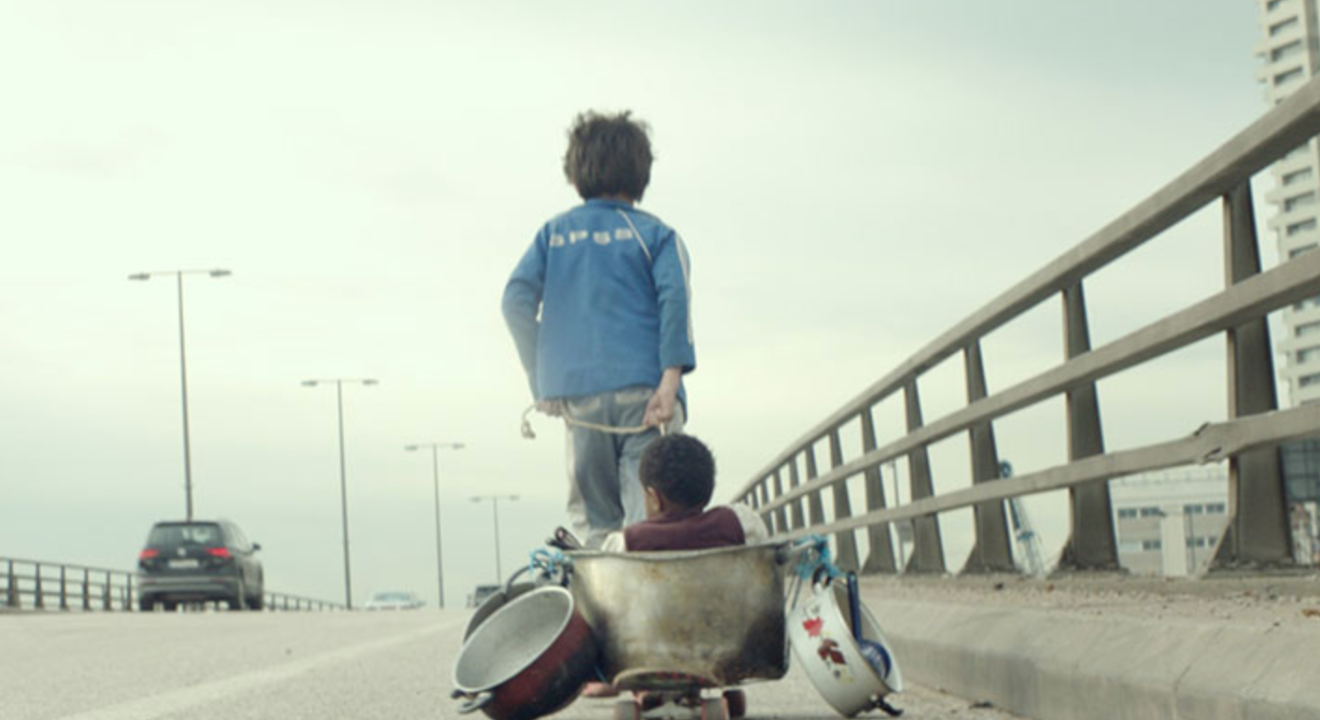Films February 15, 2019


In French literature, the word capernaum signifies complete chaos and disorder. On the other hand, its Biblical meaning is about a place that is cursed but also where miracles occur.
And that’s exactly what director Nadine Labaki portrays in her Oscar-nominated film “Capernaum.”
“That’s what’s going on in the world right now,” Labaki said in a press release. “It’s a mixture of chaos and miracles every day.”
“Capernaum,” which is also executive produced by ENTITY mentor and sustainability editor Susan Rockefeller, tells the story of a clever and brave 12-year-old boy named Zain who outwits the dangerous city streets, runs away from his parents and asserts his rights by taking them to court for the “crime” of bringing him into this world.
The idea of the film came to Labaki at a red light while she was driving home one night. When she saw a woman and a one-year-old baby boy sitting on a traffic island, she realized the little boy was having trouble sleeping.
“Every time he would doze off, he would wake up again,” she said. “And it hit me. The only place where this kid is going to experience life is this half a meter of concrete between two highways. It’s all he knows. And if he ever tries to leave it, he’ll probably be hit by a car.”
At the time Lebanon was also filled with refugee children who were all over the streets. Inspired by this systematic issue, Labaki’s film explores how society has failed children.
“Why do we as a society allow this sort of injustice to happen?,” she said. “The migrant workers’ situation in Lebanon; the absurdity of the notion of frontiers; the absurdity that you need a paper to prove that you exist — all these subjects together were things I was exploring and thinking about.”
With such a powerful story of resilience that also exposes society’s inhumanity, Labaki couldn’t take a traditional route of casting for the film.
Instead of using professional actors, she cast non-professionals playing characters whose lives closely parallel their own.
When searching for the stars for the film, casting director Jennifer Haddad found young Syrian refugee immigrant Zain Al Rafeea, who plays the lead character, in a normal neighborhood playing with other boys.
Haddad spent months walking the streets of Lebanon before she found undocumented refugee Yordanos Shiferaw, who plays Nahil.
In an effort to portray the intensity and reality of the film’s story, Labaki also took an unorthodox method when it came to scripting out the scenes.
Instead of writing out each character’s lines, she gave her cast the basic outlines of a scene and let them improvise from there. They were told to use their own words and gestures, say whatever they felt like saying, and react however they wanted to react to the situation.
Labaki aimed to blur the lines between the film and reality and portray real and raw emotions.
“I’m aiming for how the audience feels as a viewer, and if they just look at them as ‘characters,’ I would feel like I had failed,” she said. “I want them to be wondering ‘Is this a real actor, or is this somebody who’s been picked up and asked to be the character, using their own life experience?'”
“Capernaum” doesn’t just tell a story. By revealing a deeper truth of a society that places rules and regulations on people to keep them trapped and makes it impossible for them to ever really be free, this film is a call to action.
The actors of the film itself were being arrested during filming because they were refugees without papers and now the leads are freely and comfortably living in Norway and France. There is an even more real story behind the story of the film and that itself will incite an inspiration that can change the world.